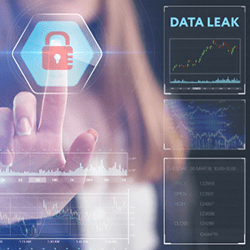What is Remote Access?
Remote access is a technology that allows users to connect to a remote PC using a local device. Once connected, the user can now access and control the remote PC as if he is sitting in front of it. He can use apps, manage files, and even fix technical issues.
Using Remote Access Security to Your Business
Most businesses nowadays use remote access. With the help of this technology, employees can have the ability to access their company's network from home. This means that they can gain access to their office files and data even if they aren't physically present inside an office space. They can also conduct important emergency meetings when a client is in a different city or can't make it to their presentations. It helps them stay productive and efficient no matter the situation.
However, remote access can also bring some level of security concerns to your business. As you can see, this technology is a favorite among hackers and online intruders. The open environment you've created can invite numerous attackers to gain access to your system. That's why you need an extra layer of security for your corporate data and files.
Remote Access Security Solutions
Implementing remote access security solutions is necessary to protect your files from unwanted access and attacks. You should include solid planning of how you'll implement these remote access security solutions for your business. A few planning tips on how to come up with a remote access security strategy are listed below:
1. Impose Strict Accessibility Rules
Not everyone in your organization needs remote access. This technology should not be used at all times. Therefore, you need to identify only those employees who in fact, need remote access. This means that only a few people have the privilege to access your network outside of your office. Limiting the number of people who can use remote access can help you strengthen the protection of your network. This means that only those who are authorized can gain access to your system remotely.
2. Require Users to Undergo Strict Verification Processes
Just because certain employees have the privilege to use remote access doesn't mean they no longer have to undergo strict authentication processes. What we mean by this is that all users need to be verified first before connecting to your network remotely. Usually, they have to provide the right login credentials first before they can gain access to your system outside of your office. The purpose of this is to ensure that all access made to your system is secured and protected.
3. Audit All Remote Logins
It's important to make a record of all the remote access logins and connections made on your system. This is just to ensure that when a security incident occurs after a connection is made, you can easily track down the perpetrator and the attack itself. To do this, require certain people in your IT department to keep a record of all these attempted connections for future review and assessment.
4. Use Secure Remote Access Software
The last remote access security solution we have on this list is investing in secure remote access software. By doing so, you'll be able to reduce the risk of a potential malware infection and security breach. In the past, only big companies could purchase remote access software. Fortunately, you do not need to spend a dime to get one for your business as there are tons of remote access software out there.
ITarian Remote Access is a Remote access software that allows users to connect to remote devices and networks from a distance. This tool is ideal for businesses as it is both easy and safe to use. The good thing about ITarian Remote Access is that it uses standard encryption technologies that protect your data from being stolen. It also has solid authentication technologies that verify if the user is safe and secure enough to access your network remotely. Here are some of the key features of ITarian Remote Access:
- Secure Remote Access: Encrypts all remote sessions to prevent third-party recordings of confidential interactions.
- Session Confirmation: Authorizes all attempted connections made on the remote computer.
- Firewall Free: Allows users to connect to remote endpoints without requiring them to open up their firewall.
- Auto Update: Automatically provides users with its latest security features and updates.
Conclusion - Remote Access Security Solutions
As you open up your network for a more productive work culture, you need remote access security solutions to back you up in times of security crisis and catastrophe. Plan a solid remote access strategy now and reap its benefits for your business.
Get ITarian Remote Access for free by emailing us at support@itarian.com.

